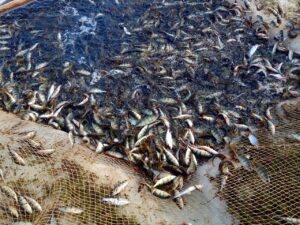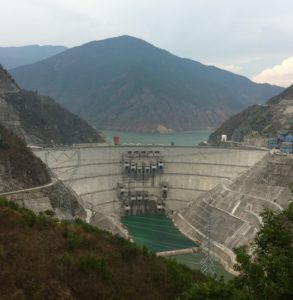
This essay is part of a series by leaders and members of ACRE on efforts to increase climate resilience. Views expressed are the author’s.
Resilience against all threats ensures the effectiveness of national defense and homeland security, the safety and well-being of populations, and the effectiveness of both businesses and governments. (Resilience is the ability to recover and restore damaged or failed capabilities at reasonable cost within reasonable time.) More than just considering the capabilities or intent of an enemy or competitor, all causes of conflict must be identified, considered, and mitigated. Sending military forces around the world to address or engage in armed conflict or massive assistance efforts is the very worst situation and a last resort when all other means have failed.
Internal national issues and international friction leading to conflict are driven by climate change. More than realized, climate change is leading to conflict over water. In the 21st century there may be more conflict over water than over oil in the 20th century. For example, control of major rivers is contested as upriver countries dam and divert water for their own use. This cuts off critical water supplies down river and sometimes floods population or agricultural areas. Both too much, or too little water, displaces populations, causes economic issues, and create refugee crises.
Agricultural input is lost not just through water diversion but also the effects of extreme weather. Too much heat, extreme cold, flooding, drought, uncontrollable wildfires. Exploitation and deforestation of jungles disrupt animal and human populations. Rising sea levels will affect large portions of the world’s population that live in coastal areas. Housing, critical commercial transportation, and power infrastructure lost requiring replacement or alternatives at great cost.
Populations and livestock displaced through climate change, rising waters and temperatures lead to refugee crises, food shortages, pandemic disease, and intense competition for shrinking useable resources. Areas of the world may become ungovernable as non-state actors, criminal elements, and desperate people seek help from governments that cannot provide it. In the 21st century our world intricately linked by information technology, people, travel, economics, and international business will be affected by crises in faraway places. These factors all create threats of concern for national defense, homeland security and international business.
Resilience in consideration of all risk factors is a consideration for national defense, business, and all agencies of federal, state, and local government. Continuity of operations, the safety of people, and success of all organizations depend upon risk identification, mitigation, and leadership risk management decisions.
The most crucial factor in addressing these issues is “Intellectual Capital” (IC). IC requires the allocations of human or artificial intelligence resources, advanced data management and analysis, to address all risk factors enabling leadership decisions on acceptable risk and the best allocation of capital. IC is people and their time. Not an inexpensive resource, but far less costly than armed conflict, failed investments, and catastrophic business losses.
Therefore, I and many current former senior military officers are focused on addressing these challenges. The Alliance for a Climate Resilient Earth provides the international network and facilitates intellectual resources to address the critical issues at hand in an extraordinary number of areas. (“Win without Fighting” – Sun Tzu) – – – Think about it. Do it!



